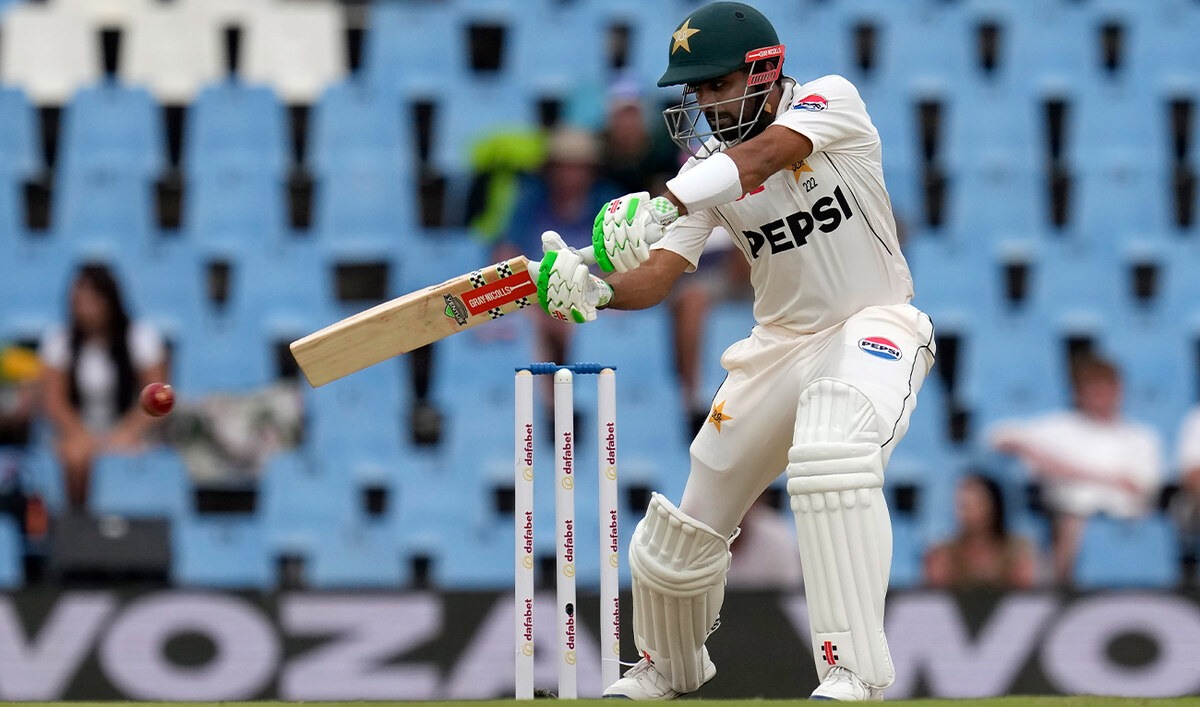ISLAMABAD: Pakistan’s landmark move to mainstream madrassas (religious seminaries), meeting a highly pressing demand arising post 9/11 attacks, is being viewed as the “step in the right direction” by all sides.
Pakistan government announced last week to bring 30,000 religious schools under the ministry of education with modernized curriculums after reaching a formal agreement with the leaders of major madrassa systems.
The mainstreaming of thousands of madrassas (religious seminaries) has for years been a delicate subject in the Muslim majority country of 208 million people, where religious schools have often been blamed for the radicalization of youngsters. Repeated attempts to modernize seminaries in the past were stayed due to fears of a religious backlash.
“This agreement is just a step, but a step in the right direction,” said Arshad Mirza, federal secretary at the Ministry of Federal Education and Professional Training, who was closely involved in negotiating the agreement.
“We are introducing technical education for madrassa students including modern IT-based skills and other technology courses,” Mirza told Arab News.
Pakistan’s government has been facing increased global pressure to act against militant groups, with the Paris-based terror financing watchdog, the Financial Action Task Force, scrutinizing the country’s compliance with an internationally agreed action plan, and a timeline until October to improve its counter-terror financing operations or risk being sanctioned.
With some seminaries considered as breeding grounds for militancy, and as pretexts for militant financing, the government revealed in April this year that it planned to bring 30,000 seminaries under the Ministry of Information.
These reforms were on the cards for a long time. In the aftermath of the Al-Qaeda led Sept. 11, 2001 attacks in the US, where almost 3,000 people died in three American cities, the 9/11 Commission Report linked madrassas to militancy. Under US pressure, the then government of President Pervez Musharraf attempted to modernize seminaries but did not have much success against a strong religious lobby.
Now, Mirza said, the government would introduce a single curriculum that applied to seminary classrooms as well, the National Common Curriculum.
“We will introduce common curriculum for the students of class one to five in March 2020 and then take it to the highest level subsequently,” he said.
Eventually, the government wants madrassa students to study under the common curriculum up to class eight.
“These students will study the same syllabus as other children, whether he is a son of a bureaucrat, a businessman or a minister. It is a big challenge but it is a step toward the right direction to unify the nation,” he said.
Professor Sajid Mir, President Wafaq-ul-Madaris Salfia, who is also a signatory in the madrassa agreement with the government, told Arab News that he was optimistic about the move and happy to deal directly with the country’s education ministry.
“It was our long-standing demand that the ministry of education should deal with madrassas (seminaries) as previously, either they put us under Interior Ministry, or others, who had no direct link with us.”
Mir said seminaries had never opposed madrassa reforms and registration, but simply demanded a more convenient process to register themselves.
“We always asked for an easy process, as institutions (involved in registration) demanded a lot of documents and the process was very complicated. I hope now, things will move forward smoothly,” he said.
Pakistan manages to harness madrassas 18 years after 9/11 attacks
Pakistan manages to harness madrassas 18 years after 9/11 attacks

- In 2001, the 9/11 commission report had linked madrassas to militancy and pressured Pakistan to crack down against seminaries
- Seminaries never opposed reforms, only asked for easy registration, says Sajid Mir
Afghan Taliban forces target ‘several points’ in Pakistan in retaliation for airstrikes — Afghan defense ministry

- The strikes are the latest spike in hostilities on the frontier between Afghanistan and Pakistan
- Tensions between both countries escalated since Taliban seized power in Afghanistan in 2021
KABUL: Afghan Taliban forces on Saturday targeted “several points” in neighboring Pakistan in retaliation for Pakistani airstrikes this week, Afghanistan’s defense ministry said.
The strikes are the latest spike in hostilities on the frontier between Afghanistan and Pakistan, with border tensions between the two countries escalating since the Taliban government seized power in 2021.
The Afghan defense ministry statement did not mention Pakistan, but said the strikes were conducted “beyond the assumptive lines,” an expression used by Afghan authorities to refer to the country’s border with Pakistan that they have long disputed.
There was no immediate comment from the Pakistani side.
“Several points beyond the assumptive lines where the attacks in Afghanistan were organized and coordinated from wicked elements’ hideaways, centers and supporters; were targeted in retaliation from the southern side of the country,” the Afghan defense ministry said on X.
This week’s Pakistani strikes, which targeted alleged hideouts of the banned Tehreek-e-Taliban Pakistan (TTP) on Dec. 24, came amid allegations by Pakistani officials of cross-border militant attacks as extremist violence targeting Pakistani civilians and security forces has surged in recent weeks.
Afghan authorities claimed the victims included residents from Pakistan’s border regions, who were uprooted during military operations against TTP fighters in recent years, with the United Nations (UN) expressing concern over civilian casualties and urging an investigation.
The TTP is a separate group from the Afghan Taliban but pledges loyalty to the rulers in Kabul.
Pakistan has frequently accused neighboring Afghanistan of sheltering and supporting militant groups, urging the Taliban administration in Kabul to prevent its territory from being used by armed factions to launch cross-border attacks. Afghan officials deny involvement, insisting Pakistan’s security issues are an internal matter of Islamabad.
Pakistan weekly inflation increases for third week in a row

- Pakistan’s annual consumer inflation slowed to 4.9 percent in November, lower than the government’s forecast
- Major increase observed in prices of chicken, tomatoes, sugar, vegetable ghee, liquefied petroleum gas and soap
ISLAMABAD: Short-term inflation, measured by the Sensitive Price Index (SPI), has risen to 5.08 percent in Pakistan on a year-on-year basis, the country’s statistics bureau said this week, with an increase observed in prices of edible items.
The SPI, which comprises 51 essential items collected from 50 markets in 17 cities, is computed on a weekly basis to assess the price movement of essential commodities at shorter interval of time so as to review the price situation in the country.
The SPI for the week ending on Dec. 26 increased by 0.80 percent as compared to the previous week, according to the Pakistan Bureau of Statistics (PBS). This is the third time short-term has increased in the South Asian country. Weekly inflation last decreased by 0.34 percent in Pakistan in the week ending on Dec. 5.
“During the week, out of 51 items, prices of 17 (33.33 percent) items increased, 10 (19.61 percent) items decreased and 24 (47.06 percent) items remained stable,” it said in a report.
Major increase was observed in prices of chicken (22.47 percent), tomatoes (20.75 percent), sugar (2.19 percent), vegetable ghee 1 kilogram (1.17 percent), firewood (0.95 percent), cooking oil 5 liter (0.74 percent), cooked beef and mustard oil (0.69 percent) each, liquefied petroleum gas (0.18 percent) and washing soap (0.09 percent).
The items that recorded a decrease in prices included onions (8.13 percent), potatoes (2.38 percent), bananas (0.68 percent), rice (0.50 percent) and eggs (0.30 percent).
Pakistan’s annual consumer inflation slowed to 4.9 percent in November, lower than the government’s forecast, according to the PBS. The finance ministry had projected inflation would slow to 5.8 percent-6.8 percent in November and ease to 5.6 percent-6.5 percent in December.
Consumer inflation cooled from 7.2 percent in October, a sharp drop from a multi-decade high of nearly 40 percent in May 2023.
Head of coalition party slams ‘foreign interference’ in Pakistani politics, vows to defend nuclear program

- Bhutto-Zardari’s statement comes days after the US imposed sanctions on entities related to nuclear-armed Pakistan’s missile program
- It also follows Trump nominee Richard Grenell’s call for the US administration to push for ex-PM Imran Khan’s release from Pakistan jail
ISLAMABAD: Bilawal Bhutto-Zardari, chairman of a main party in the ruling coalition, on Friday criticized “foreign interference” in Pakistan’s politics, saying that its real target was the South Asian country’s nuclear program.
Bhutto-Zardari’s statement came days after US President-elect Donald Trump’s special envoy nominee Richard Grenell urged President Joe Biden’s administration to use its last days in power to push for former prime minister Imran Khan’s release from prison so he could run for office in Pakistan.
Grenell has been in the news in Pakistan in recent weeks over social media posts calling for the release of Khan. His comments came more than a week after the US State Department imposed sanctions on four entities related to nuclear-armed Pakistan’s long-range ballistic-missile program, including on the state-owned defense agency that oversees the program.
Speaking at his Pakistan Peoples Party rally in Larkana, Bhutto-Zardari said Pakistan was currently facing internal issues, economic crisis and a surge in militancy as well as several difficulties on the external front, which required unity of all political stakeholders.
“No one is worried about Pakistan’s democracy, human rights or about a prisoner in Pakistan,” he said, without naming anyone.
“Imran [Khan] is only an excuse, but the target is Pakistan’s atomic program.”
Bhutto-Zardari said Pakistan’s opponents were looking at the country’s nuclear capability with an “evil eye.”
“They wish that no Muslim country should have such [nuclear] power and they are trying to deprive you of this power some way or the other,” he said.
“As long as the Pakistan Peoples Party is there, we will not let anyone make a compromise on our atomic power.”
Speaking to reporters on Thursday, Pakistan’s Foreign Office Spokesperson Mumtaz Zahra Baloch declined to comment on Grenell’s statement, while Pakistan’s Defense Minister Khawaja Asif this week alleged that Western voices backed by Israel were demanding Khan’s release from prison as part of an “anti-Pakistan campaign.”
Pakistan has been gripped by political unrest and uncertainty since Khan’s ouster from power through a parliamentary no-confidence vote in April 2022. He blames his removal from the PM’s office on his political rivals led by PM Shehbaz Sharif and the all-powerful military. Both reject the charge.
Khan has been in jail since August last year on a slew of cases he says are politically motivated to keep him away from power.
Pakistan’s cabinet approves policy guidelines for trade in carbon market

- The new guidelines will establish regulatory framework for governing both voluntary and compliance carbon market activities
- These markets are carbon pricing mechanisms that enable governments, non-state actors to trade greenhouse gas emission credits
ISLAMABAD: Pakistan’s federal cabinet on Friday approved policy guidelines for trade in carbon markets that help channel financial resources to reduce carbon emissions and mitigate their contribution to climate change.
Carbon markets are carbon pricing mechanisms enabling governments and non-state actors to trade greenhouse gas emission credits. There are two types of carbon markets: compliance and voluntary. In compliance markets such as national or regional emissions trading schemes, participants act in response to an obligation established by a regulatory body.
In voluntary carbon markets, participants are under no formal obligation to achieve a specific target. Instead, non-state actors such as companies, cities or regions seek to voluntarily offset their emissions, for example, to achieve mitigation targets such as climate neutral, net zero emissions.
The new guidelines aim to establish a clear regulatory framework for governing both voluntary and compliance carbon market activities in Pakistan, following international requirements and good practices.
“The federal cabinet approved policy guidelines for trading in the carbon market on the recommendation of the Ministry of Climate Change and Climate Coordination,” Prime Minister Shehbaz Sharif’s office said in a statement after the meeting.
Pakistan’s Ministry of Climate Change marked Nov. 16 as the Pakistan Pavillion’s “Carbon Market Day” and organized a high-level event on carbon markets at the UN COP29 climate summit to cement Pakistan’s commitment to participation in the new global carbon market.
Nearly 200 governments agreed on the framework that sets up a centralized global mechanism with clear rules and procedures for countries and companies involved in carbon credit transactions.
Pakistan’s policy guidelines aim to foster investments in energy, agriculture and forestry sectors, according to state media. Through these carbon markets, businesses will be encouraged to adopt eco-friendly technologies and reduce greenhouse gas emissions.
Under Article 6 of the Paris Agreement Crediting Mechanism (PACM), developing countries can host emissions reduction and removal projects and trade the resulting carbon credits internationally as a means to generate new revenue streams and unlock investment in ambitious climate action.
Pakistan’s “Carbon Market Policy Guidelines” outline a cohesive strategy and authorization criteria, which prioritizes investment in resilience and climate change adaptation, and works closely with provincial governments, the UN Environment Program says on its website.
“While these guidelines offer cultural and geographical nuance for each province’s differential needs, they set stringent quality control criteria, thus ensuring high-quality project development with substantial co-benefits. Finally, countries will experience a competitive and cost-efficient framework that emphasizes fairness in benefit distribution,” the document says.
A number of project opportunities have already been identified on the basis of which the government of Pakistan intends to initiate dialogues on Article 6 collaboration, according to the UN.
Bosch, Jansen put South Africa on top against Pakistan

- Bosch, batting at number nine, enabled South Africa to take a 90-run first innings lead
- Bowlers made it count by taking three wickets before Pakistan could wipe out the deficit
CENTURION: Debutant Corbin Bosch hit 81 not out and left-arm fast bowler Marco Jansen claimed two late wickets as South Africa took control on the second day of the first Test against Pakistan at SuperSport Park on Friday.
Bosch, batting at number nine, enabled South Africa to take a 90-run first innings lead — and the bowlers made it count by taking three wickets before Pakistan could wipe out the deficit.
Pakistan finished the day on 88 for three — still two runs behind.

South Africa would qualify for next year’s World Test Championship final for the first time with a victory in either match of this two-Test series.
The contest was evenly poised when opening batsman Aiden Markram was eighth man out for 89 with South Africa on 213 for eight — just two runs ahead of Pakistan’s first innings total of 211.
Four South African wickets had fallen for 35 runs either side of lunch, with Naseem Shah taking three in a fiery spell, and it seemed probable the sides would start the second innings almost on level terms.

But Bosch, who has a first-class batting average above 40, batted with freedom and a wide variety of strokes as he shared stands of 41 with Kagiso Rabada (13) and 47 with Dane Paterson (12) to turn a narrow lead into a substantial one.
Bosch hit 15 fours in a 93-ball innings.
“It was a huge momentum shift and it was probably worth more than a hundred,” said Markram, who captained Bosch and Rabada when South Africa won the Under-19 World Cup in Dubai in 2014.
It was the continuation of a remarkable debut for Bosch, 30, who took four for 63 in the first innings and was clocked at 147kmh, the fastest of any bowler in the match.
Bosch, whose Test cricketer father Tertius died when Corbin was five years old, was low on the list of potential Test fast bowlers at the start of the season.
But a lengthy list of injuries to bigger-name players, as well as good recent form, opened the door for him.
“He’s a really talented guy and in the last few years he’s really put his head down and worked to get his opportunity,” said Markram.
Bosch shared the new ball with Kagiso Rabada at the start of Pakistan’s second innings but did not take a wicket and left the field at the end of a three-over stint.
Saim Ayub and Shan Masood, who both made 28, put on 49 for the first wicket before Rabada bowled Ayub.

Jansen followed up by having Masood caught at third slip and first innings top-scorer Kamran Ghulam caught at gully for eight before bad light stopped play.
Markram said it was a typical Centurion pitch, providing assistance for the fast bowlers.
“While I was batting it did feel that at any time the ball could nip past your edge,” he said.
Markram cautioned South Africa would need to bowl well to press home their advantage on Saturday.
“If you’re not going to land the ball in the right areas it’s still going to be nice to bat on,” he said.










